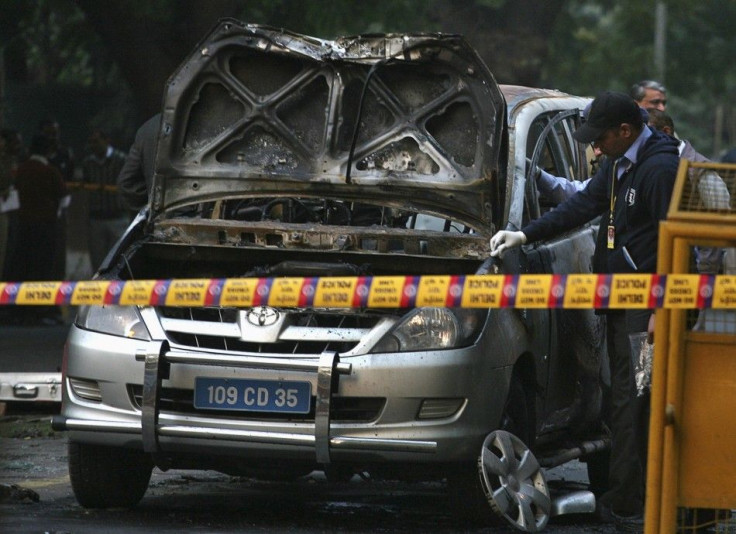Is Oil Gagging India When it Comes to Blaming Iran?

Despite growing evidence that Iran was behind Monday's savage car bomb attack on an Israeli defense attache's wife, India has remained surprisingly silent when it comes to apportioning blame.
Instead of a robust response, New Delhi has downplayed speculation over Tehran's possible role in the assasination attempt, with a foreign ministry official declaring on Wednesday that there was no evidence pointing to any individual, entity, organization or country being involved in Monday's blast, so far, according to Reuters.
But while Indian authorities have launched an investigation into the plot, and its suspected masterminds, Prime Minister Manmohan Singh's government has continued to embrace trading with the Mullahs.
On the surface, the relationship between the world's largest democracy and one of its most repressive theocracies seems like an unlikely fit.
However, India is Iran's biggest customer for oil exports -- last month surpassing China -- with Tehran shipping an estimated 12 percent of India's crude requirements.
In fact, so committed is India to buying Iranian oil, that in order to circumvent a recent international ban on paying Tehran in dollars, New Delhi will now pay for nearly half its dues in Rupees, and even wheat.
Only last week, India's Trade Secretary Rahul Khullar said his country wanted to step up exports to Iran in a range of goods to settle part of its oil dues.
There are UN sanctions which India honors, those don't cover the export of [a] vast range of products which India can export to Iran, Khullar told reporters.
And in a bid to further advance the horse trading between Tehran and New Delhi, Commerce and Industry Minister Anand Sharma told The Hindu newspaper that India was going ahead with a high-level trade delegation planned for later this month, adding, We are looking at Iran as a potential investment and trade destination and the delegation will seek to enhance the economic engagement with Tehran.
Underlining this relationship, government-owned Hindustan Petroleum Corp. last week signed a deal with Iran for the supply of 3 million tonnes of crude oil during 2012-13.
And on Friday the second biggest Indian client of Iranian oil, Essar Oil, announced it would continue to buy 100,000 barrels per day from Iran during 2013, defying UN and EU sanctions.
On the other hand, Israel is the second-largest supplier of arms to India.
It would seem then, that when it comes to the escalating war of words -- and bomb attacks -- India is in an impossible diplomatic bind.
The same cannot be said for authorities in Thailand, who foiled their own attack on Tuesday after the plotters accidentally blew up their makeshift bomb-making factory before fleeing the scene.
With three Iranian men in custody - and one in the hospital after the bungled attack blew his leg off - Thai national Security Council Secretary Wichian Podphosri told Reuters on Friday the New Delhi and Bangkok bombs had the same magnetic component used to stick them to their targets - a method unheard of in both countries until this week.
For the time being then, the Indian government is prepared to ignore growing evidence that elements of the Iranian government were behind an attack on its soil, putting energy demand above international relations.
© Copyright IBTimes 2024. All rights reserved.





















